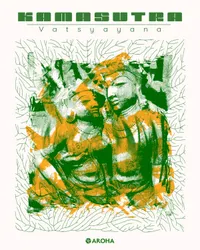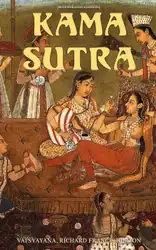The Kama Sutra, or Aphorisms on Love, has survived at least 1400 years as a dominant text on sexual relations between men and women. Vatsyayana claimed to have written the Kama Sutra while a religious student, "in contemplation of the Deity" - but references to older works, shrewd disputations by Vatsyayana of those authors' recommendations, and careful cataloging of practices in various of the Indian states indicate much more emphasis on kama, or sensual gratification. Part of the book discusses the 64 arts of love employed by masters of coitus. Learning each of these and when and how to practice them, Vatsyayana affirms, not only leads to the best gratification, but makes the artist a person of great desirability.
The Kama Sutra
Commencez ce livre dès aujourd’hui pour 0 €
- Accédez à tous les livres de l'app pendant la période d'essai
- Sans engagement, annulez à tout moment
Auteur(e) :
Narration :
Langue :
anglais
Format :

Kamasutra

Kamasutra

Kama Sutra : Exploring Love, Desire, and Intimacy in Ancient India: An Erotic Journey Through Cultural Legacy and Human Literature

Kama Sutra (Illustrated Edition) : An Ancient Indian Treatise on Love, Life and Society For Adult Readers

The Kama Sutra of Vatsyayana : Translated From the Sanscrit in Seven Parts With Preface, Introduction and Concluding Remarks

Kama Sutra (With Illustrations)

The Kama Sutra of Vatsyayana

The Kama Sutra of Vatsyayana

Kama Sutra : Illustrated Edition

Kama Sutra : Illustrated

Kama Sutra (Illustrated Edition) : An Ancient Indian Treatise on Love, Life and Society For Adult Readers

33 Human Science Masterpieces You Must Read Before You Die. Illustrated : The Art of Public Speaking, The Meditations, The Kama Sutra and other masterpieces
